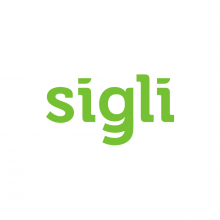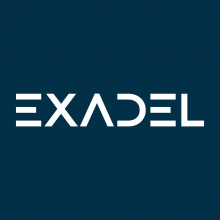
There are 12 Companies in Lithuania
that provide Go development Services!
Lithuania's ICT sector is evolving, full steam ahead. An increasing number of companies have arrived in the country, drawn by its infrastructure, people, and business-friendly mindset. With some of the fastest and most affordable internet connections in Europe and a tech-savvy population ranking 16th in the world for ICT skills, Lithuania has recently attracted giants such as Google.
Discover Top IT Companies in Lithuania specialized in Go and other related services. Find the best IT service providers for your projects.
Go, also known as Golang, is an open-source programming language created by Google. It is designed for simplicity, efficiency, and concurrency, making it a versatile choice for building a wide range of applications, from web services to system software.
Handpicked companies • No obligation to hire • 100% risk-free
Featured Companies in Lithuania
This month, the following Go development companies managed to provide an outstanding service and support. It's worth taking a look.
Explore Top Go development Companies in Lithuania
Altabel Group offers custom software development, IT consulting and flexible team augmentation for the clients worldwide.
We architect and engineer first-class custom software solutions to meet our clients' business challenges.
IT Staff Augmentation & Tech Recruitment Services: JayDevs helps you skip the sourcing, job ads, and resume screening.
A remote-first software company delivering exceptional digital products, services, enterprise applications & platforms that excite users.
We are digital advisors that help businesses adopt digitization paths, crystalize business objectives, and ensure efficient and timely implementation.
We are WYRD IT - a digital product development company focused on helping startups and established businesses build and scale their online presence.
We transform ideas into software products.
Filter Go development Companies in Lithuania by Cities
Find the right tech company near you or from a specific city. Some of the best companies might be located in smaller cities.
Find more Go development companies around the world
TechBehemoths is the world's most advanced and user-friendly platform to match IT Companies with real clients without hustle.
The ICT in Lithuania: Overview and Companies Data
In the past 10 years, Lithuania has developed its IT industry and infrastructure. Projects like e-Lithuania, e-residency, and VR Lithuania, among others, transformed the country into a fully digitalized hub in the Baltic region.
The IT Services sector itself plays an important role in the Lithuanian economy, registering a revenue of almost $500 million in 2025. Also, ~4.0% of the entire Lithuanian workforce is enrolled in the IT industry, for those 4200+ digital companies that export their services in 130 countries.
Why Work With Lithuanian IT Companies
Essential e-solutions in Lithuania that enable the digital society to function smoothly were all built by local Lithuanian companies. This enhances the reliability of Lithuanian IT companies not only locally but also worldwide - about this, we will relate a bit later.
The already built digital system in Lithuania already tells a lot about Lithuanian IT companies that perform excellently, and are becoming more and more attractive not only for companies but also for skilled professionals who are enjoying preferential conditions.
So, after all, why should you work with Lithuanian IT companies?!
- Skilled workers who provide high-level digital services
- Open market - that facilitates and eases access to IT resources and companies' services
- Low taxes - compared with other European countries, Lithuania helps local IT and tech companies generate sales by cutting taxes, which can reflect a lower price/project for the end customer.
- A healthy business environment and well-established communication between businesses are assured.
What You Should Pay Attention to When Working With Lithuanian IT Companies
However, working with Lithuanian IT companies can also be tricky. Even though the post soviet reminiscences are not visible, you still can hit Russian Lithuanians that are providing the same IT services, but of a relatively lower quality, and in a very specific manner. Roughly, some of the companies are only benefiting from the developed IT environment in Lithuania, but don’t follow the same guidelines as the vast majority of companies do.
Another challenge is the limited human resources that Lithuanian companies have. The country’s population is just above 2.8 million people, and 6% of it is simply not enough to cover all market demands, so it would be difficult to find an available IT company based in Lithuania to take on a big project or so.
How Developed is the Lithuanian IT Infrastructure
Lithuania ranks among the top European countries with the highest IT infrastructure. As mentioned previously, its digital transformation made the country one of the regional innovation leaders. But even so, the country is still not done yet with developing its IT capabilities.
How Does the Lithuanian IT Industry Perform Compared to the Neighboring Countries?
In the Baltics, Lithuania is a detached leader in IT. Latvia and Estonia are behind simply because they focused on developing other sectors. But the Lithuanian performance is also motivated by people’s attachment to digital technologies. The continuously growing number of digital agencies confirms once again that Lithuania ranks better than neighboring countries.
But speaking about Lithuania as an extension to Europe’s northern region, the country is in tight competition with Latvia and Estonia, which also find themselves somewhere in the first half of the European IT community.
Compared with those two countries, Lithuanian companies will rather provide lower prices for their IT and digital services and products, but at the same time, Lithuania has way more limited resources than Estonia or Finland.
All in all, Lithuania is a great country to consider for digital projects, and local companies' rich experience with digital transformation can make a difference in their projects.
Lithuania's Tech in 2025 - Update
Considering the progress Lithuania has made throughout the last 3 years, it is no wonder that 2022 will be another good period for the ICT and, especially, local IT companies. Lithuania is abundant with news and tech-related events meant to encourage startups and entrepreneurship. As a direct result of continuous efforts invested in ICT, Lithuania got the #10 global position in FinTech and has over 42K ICT specialists employed in the tech sector as of December 2021.
In 2025, the tech sector in Lithuania is experiencing major growth with the help of startup funding, with 167.7 million euros raised. The ICT sector contributes 5.4% to GDP through exports, especially to the US and the UK.
What is Go and what are its benefits for your projects?
Go, also known as Golang, is an open-source programming language created by Google. It is designed for simplicity, efficiency, and concurrency, making it a versatile choice for building a wide range of applications, from web services to system software.
More than 363 verified IT companies leverage Go in their development projects. These companies range from startups to tech giants like Google, Uber, and Dropbox. They appreciate Go's speed, reliability, and ease of use for building scalable and performant software.
Go service providers rely on various tools and technologies to enhance their development process. Some commonly used tools include the Go compiler, which transforms Go code into executable binaries, and the Go standard library, which offers essential packages for building applications. In terms of deployment, containerization technologies like Docker are frequently used to package Go applications for consistency and portability.
You may be wondering, how is Go Different from C, Rust, and Java. So, below we’ll try to show you more about the differences that exist between them:
-
Go vs. C: While both Go and C are low-level languages, Go offers modern features like garbage collection and memory safety, which simplify programming. Go is also more concise and expressive than C, making it easier to read and maintain. But if you think your business needs companies that also specialize in C, you can find them on this page
-
Go vs. Rust: Rust emphasizes memory safety and control without sacrificing performance. While Go offers simplicity and readability, Rust provides fine-grained control over memory and is suitable for systems programming with a focus on safety.
-
Go vs. Java: Java is a high-level language often used for building enterprise-level applications. It relies on a virtual machine (JVM) and is known for platform independence. Go, on the other hand, compiles native code, offering better performance and efficiency for certain use cases.
Languages related to Go in terms of use cases and features include Python, Ruby, and Node.js. These languages, like Go, are suitable for building web services and backend applications and are known for their developer-friendly features. If you need these programming languages in addition or instead of Go, just click on their corresponding words above to find verified vendors providing those services.
When selecting IT companies that use Go for your project, consider factors such as the company's experience with Go, their portfolio of past projects, client references, and their understanding of your specific project requirements. Look for companies that align with your project's complexity, scalability needs, and budget.
Go service providers are essential for various project types, including:
-
Web Services: Go is well-suited for building RESTful APIs and microservices due to its excellent performance and simplicity.
-
Networking Applications: Go's concurrency support makes it ideal for developing network-related software such as servers and proxies.
-
Cloud Applications: Go's efficiency and speed are valuable for building cloud-native applications and serverless functions.
-
System Software: Go can be used for developing system utilities, command-line tools, and operating system components.
Go is a versatile language, and its speed, simplicity, and efficient concurrency model make it suitable for a wide range of projects, making it an excellent choice for modern software development.











